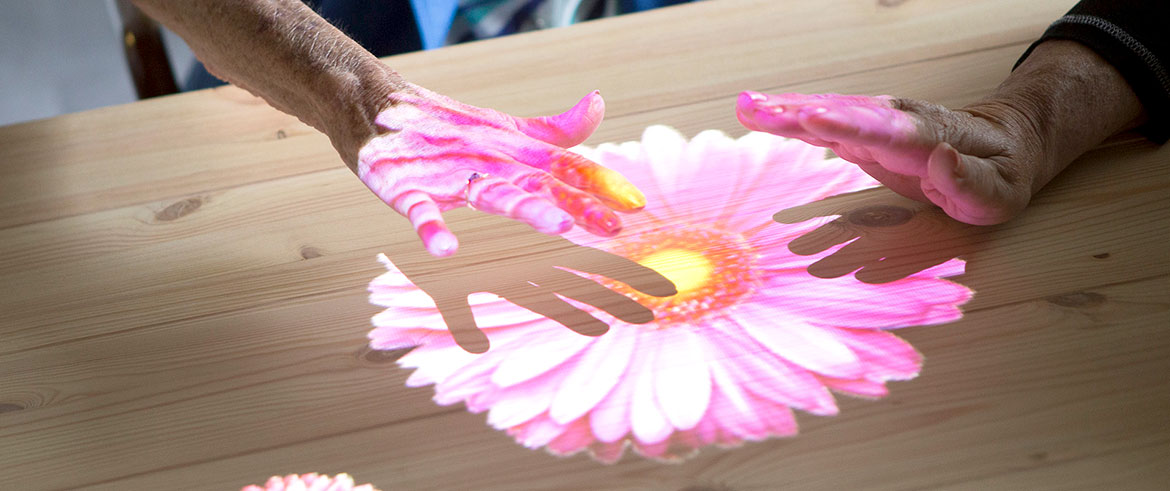More blog posts
Even more blogs from Abbeyfield
It's common that our senses go into decline as we age, which can have a huge impact on our everyday well-being. Our senses are vital to the way we experience different things, from the taste of a meal to the smell of a loved one’s perfume. A reduction in our senses can lead to a decrease in mood and may even cause a person to withdraw.
It is important that we encourage older people, especially those living with dementia, to explore different ways to engage the senses in meaningful and positive ways. Here, we explore the importance of sensory stimulation and its multitude of benefits.
Sensory activities are designed to engage the senses in natural and creative ways, which can be extremely powerful for those with conditions which affect memory or cognitive ability. Sensory stimulation can encompass a variety of dementia friendly activities from taking a walk outside and enjoying the feeling of the sun and scent of the flowers, to cooking or even looking through old photographs.
Activities which have been specifically designed for sensory stimulation are becoming more and more prevalent in care environments, as they hold a number of benefits for older residents and those living with dementia. From improvements in mood, to encouraging relaxation and reminiscence, sensory activities are brilliant ways to make connections and improve the overall quality of life for someone living with dementia.
The use of scents for example can be very beneficial for triggering memories, as it has the power to transport someone back to a time they were fond of. Listening to a specific song can help to draw on past emotions and the pairing of both sound and scent can be very powerful in creating positive feelings.

Reminiscing can sometimes be difficult for someone living with dementia as the ability to recollect memories is not as simple as it used to be. As our senses often play a huge part in the creation of memories, stimulating the senses can often help bring those memories back.
If, for example, your loved one had a favourite holiday by the sea, why not introduce the scent of the sea, and play sounds of the ocean to help elicit those memories. Ask your loved one questions about the holiday to encourage conversations around that topic.
Reminiscence or memory boxes which contain a range of sensory items that are personal to your loved ones life can be excellent for someone who may struggle to remember their past. Going through each item individually and chatting about what they mean with your loved can be a truly fantastic way to help evoke memories.
Our ability to communicate can deteriorate as we age, so it's important to introduce different techniques to help your loved one express themselves. As you talk through the old photos, films and music you'll get to know them on a much deeper level. It's a fantastic way to aid socialisation and reduce loneliness.
Sensory activities can be very calming for someone living with dementia who may experience agitation or anxiety. Soothing music and smelling a familiar scent can both help to reduce agitation and encourage relaxation, helping to improve the overall well-being and quality of life for that individual.
As someone progresses along their dementia journey, a number of different factors means it can become a lot harder for them to eat. With food being so hugely connected to memories throughout our lives, encouraging activities such as baking their favourite treat or cooking a favourite meal can help to engage the senses, start a conversation, and perhaps encourage them to eat what they've created.
As we touch ingredients, hear the sounds around the kitchen and smell the food cooking, food related activities can be a fantastic way to engage the senses. They can also give someone living with dementia a sense of purpose and accomplishment.
There are many different benefits to exploring sensory activities for someone living with dementia and these should be tailored to the individual. What works for one person may not be suitable for another, so it is important to explore a variety of different activities to keep your loved one actively engaged.
Thank you to Active Minds for their contributions on the creation of this article.